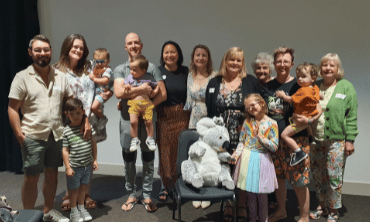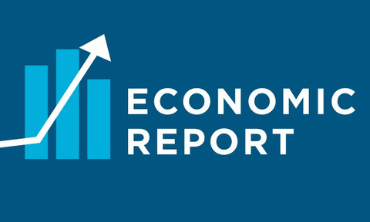Share
When father-of-two and Boss Energy CEO Duncan Craib was told he had lost peripheral vision due to glaucoma he was completely shocked – and upset with himself for not having booked an eye check earlier.

Glaucoma is a leading cause of preventable blindness worldwide. It is estimated that over 300,000 Australians have glaucoma, yet 50% of people – like Duncan – are unaware they have it and assume they have healthy eyes. While vision loss due to glaucoma can’t be restored, early diagnosis and treatment can delay or halt the progression of the disease. This is why early detection is key.
“While staying at my in-laws’ beach house in South West, Western Australia over Christmas 2022, I started noticing the glare of the sun, especially off the ocean. It was quite painful, and then I started to notice that there was a change in my sight and both eyes were throbbing and feeling uncomfortable,” explains Duncan.
“My mother-in-law suggested I book an appointment with an ophthalmologist, which I did. At this point I was still thinking I was going in to get a pair of glasses; I had no idea about glaucoma or even what it was. It was a whole new world that suddenly opened up right there when I received the news that I had lost peripheral vision and I will never get it back. I was annoyed that I hadn’t realised this earlier and done something about it.
“The frustrating thing is, I had undergone a comprehensive Medicare funded 45 -49 years health check, and other than a question of whether there was family history of eye disease there was no specific eye pressure or sight check. I think this is something that needs to be added to this key health review, especially if one has not properly been informed of family health history.”
At the time of Duncan’s diagnosis his eye pressure was high – in fact, the ophthalmologist hadn’t seen levels that high in someone of his age. He was 48 years of age at the time and had he not come in for his appointment there was a real possibility Duncan could have been blind within three months.
Today, Duncan administers drops twice a day in both eyes, which for now seems to be working, but there is a possibility surgery will be required down the track.
Anyone can develop glaucoma, but the incidence increases with age. About 1 in 10,000 babies are born with glaucoma; by age 40, about 1 in 200 people will be diagnosed with glaucoma, rising to 1 in 8 at age 80. Glaucoma is hereditary in most cases, and you are 10 times more likely to have glaucoma if you have a direct family member with glaucoma. First-degree relatives of a person with glaucoma have an almost 1 in 4 chance of developing glaucoma in their lifetime, and that risk increases to 56% if their glaucoma is advanced, so finding out about your family history of the disease is critical.
“As far as I was aware, there was no glaucoma in my family as my mum said nobody had glaucoma on her side, but dad had passed 10 years earlier. I later found out from an aunt on my dad’s side that my grandmother had glaucoma in her twilight years but, being a strong willed lady who never admitted personal issues, her declining sight had not been shared with the wider family. This is something we need to make sure is no longer happening. It’s important
Australians find out if they have a family history of glaucoma and get their eyes tested, as detection is key to saving your sight.”
Glaucoma Australia is reminding Australians this upcoming World Glaucoma Week (10–16 March 2024) to visit an eye health professional every two years for a comprehensive eye exam for those aged 50 and over, and if you have a family history of glaucoma get your eyes checked every two years from the age of 40. For those with a family member diagnosed with advanced glaucoma, it’s recommended that you attend regular eye health checks commencing five to 10 years earlier than the age of onset in your affected relative. This is why it’s so important if you are diagnosed with glaucoma that you encourage your first degree relatives to get an eye check.
“I hope by sharing my story it will draw awareness to glaucoma. We do take our eyes for granted, yet they are such an important asset in our everyday life, and a complex part of the body. It’s not until something goes wrong that we can really start to appreciate the problems associated with loss of sight. Please book an eye check if you haven’t had one and look into your family history to see if there’s glaucoma, because once you lose your sight you can’t get it back, and it really does change how you see the world – in more ways than one,” adds Duncan.
Book an eye check this World Glaucoma Week (10–16 March 2024). Early detection and treatment can save sight.


